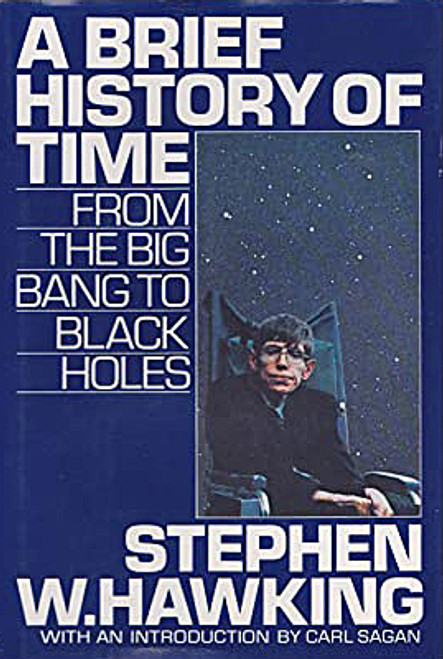Stephen Hawking has earned a reputation as the most brilliant theoretical physicist since Einstein. In this landmark volume, Professor Hawking shares his blazing intellect with nonscientists everywhere, guiding us expertly to confront the supreme questions of the nature of time and the universe. Was there a beginning of time? Will there be an end? Is the universe infinite or does it have boundaries? From Galileo and Newton to modern astrophysics, from the breathtakingly cast to the extraordinarily tiny, Professor Hawking leads us on an exhilarating journey to distant galaxies, black holes, alternate dimensions--as close as man has ever ventured to the mind of God. From the vantage point of the wheelchair from which he has spent more than twenty years trapped by Lou Gehrig's disease, Stephen Hawking has transformed our view of the universe. Cogently explained, passionately revealed, A Brief History of Timeis the story of the ultimate quest for knowledge: the ongoing search for the tantalizing secrets at the heart of time and space.
Editorial Reviews
"Stephen Hawking has overcome a crippling disease to become the supernova of world physics. Unable to write, or even to speak clearly, he is leaping beyond relativity, beyond quantum mechanics, beyond the big bang, to the 'dance of geometry' that created the universe." —Timothy Ferris, Vanity Fair
"Hawking's discovery that black holes emit particles caused great excitement among astronomers. In this succinct overview of current theories of the cosmos, the Cambridge University physicist modestly weaves in his own notable contributions while giving due credit to his colleagues. He explains why relativity implies that a ``big bang'' occurred and examines string theory, which posits a universe of 10 or 26 dimensions. His understanding of time's flow leads him to conclude that intelligent beings can only exist during the expansion phase of our increasingly chaotic universe. New research on black holes and subatomic particles holds implications for scientists who, like Hawking, are attempting to devise a unified theory linking Einstein to quantum mechanics. The merit of this book is Hawking's ability to make these ideas graspable by the lay reader." —Publishers Weekly
"When the achievements of the physicists of the twentieth century come to be considered objectively, the work of Stephen Hawking will be writ large in the annals of science." —Astronomy
"[Hawking] can explain the complexities of cosmological physics with an engaging combination of clarity and wit. . . . His is a brain of extraordinary power.” —The New York Review of Books
“Even as he sits helpless in his wheelchair, his mind seems to soar ever more brilliantly across the vastness of space and time to unlock the secrets of the universe.” —Time
About the Author







